I love gardening because it is therapeutic and beneficial. But I have also learned the importance of choosing the right crops to grow in different seasons.
Some crops do well in winter while others flourish during summer. Therefore, you should choose the right crop for your garden for the upcoming season.
Here in Texas, June marks the onset of summer. With high temperatures and plenty of sunshine, it is the perfect time for vegetable and flower gardening.
Before you grab your gardening gear for June, explore this guide and find out what to plant for maximum yield when you live in Texas.
Table of Contents
1. Tomatoes
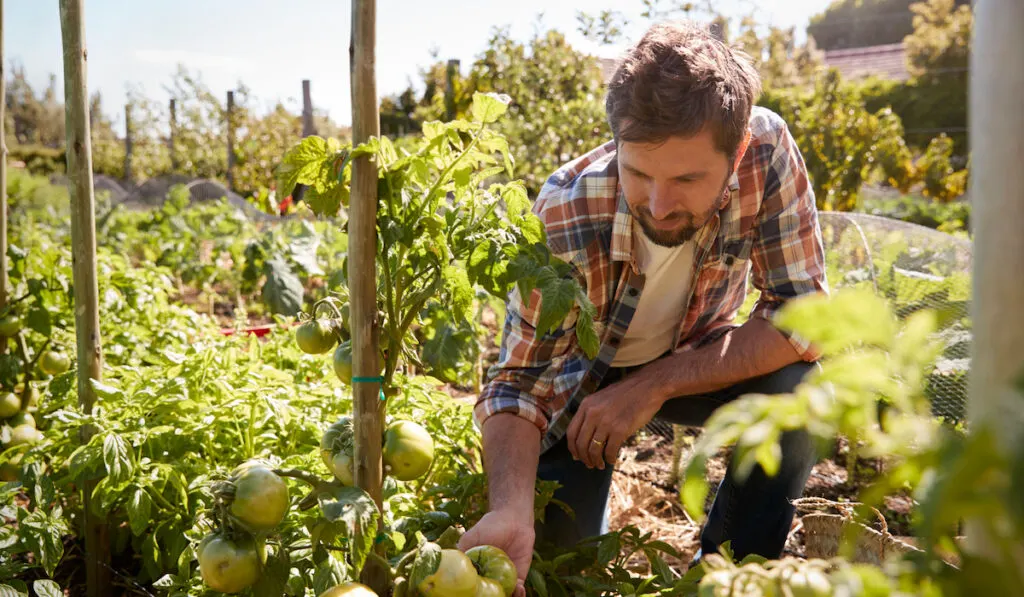
Tomatoes are common vegetable crops here in Texas. When grown in warm humid conditions, they are more flavorful.
With a maturity rate of about 12-14 weeks, you can have a bountiful harvest before summer ends.
Whether you are experienced or a beginner, tomato growing is worth trying this season because:
- They are easy to tend to.
- Common tomato diseases like powdery mildew and black mold are not common in summer.
- You can use them as vegetables and fruits.
- You will have a ready market for extras given their versatile nature.
You can grow tomatoes for subsistence or cash. Either way, you should prepare your garden well.
Some common practices include soil preparation, fertilizer application, irrigation, and pesticide spraying.
These simple preparation routines and field practices will keep your tomatoes healthy.
‘Celebrity, Juliet’, ‘Sweet Chelsea’, ‘Sweet 100’s’, and grape tomatoes are among the varieties you can grow. They thrive in hot temperatures and can give you plenty of juicy fruit.
2. Carrots
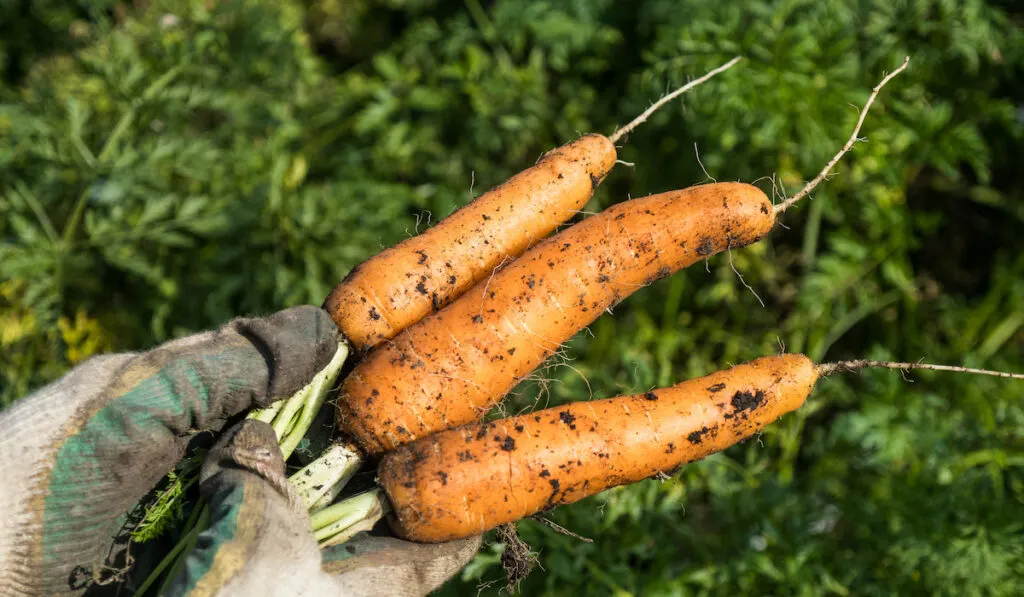
Growing carrots in June can be rewarding, but you have to choose the right variety.
Unlike tomatoes, which automatically thrive during summer, some carrot varieties only do well during the cooler months.
However, don’t shy away from growing some for your kitchen. Carrots are important because:
- They are nutritious, and you can eat them in a variety of ways.
- You will save money on your food expenditures.
- You can get some income by selling the surplus.
- You can contribute to a healthy environment.
You must keep your garden soil well drained and expose the plants to sunlight for better yields.
Ensure you apply enough organic manure before planting for an adequate nutrient supply.
‘Big Shot’, ‘Candy Sticks’, ‘Caropak’, ‘Cheyenne’, ‘Danvers126’, and ‘Sugar Snax’ are some of the carrot varieties to plant in June.
3. Onions

Having a fresh onion supply for your home pantry throughout the year is amazing. And if you think it is impossible, we can assure you it is not!
If you preserve onions well after harvest and keep them dry, they can last up to six months.
Onions require high temperatures and sunlight to thrive. This makes them perfect for planting during summer.
In addition, the high mineral content in Texan soils provides a good environment for growth. And when they mature, their moisture content is low, giving them longer storage life.
Here are more reasons why you should plant onions:
- They grow quickly.
- Low humidity and high temperatures during summer keep common onion diseases like blight and purple blotch at bay.
- You can control the growing conditions and minimize chemical use for healthier kitchen groceries.
Note that onions are sensitive to weather changes and require close monitoring for healthy growth.
You can plant ‘Yellow Granex’ and ‘White Granex’, ‘White Bermuda’, ‘Grano 502’, ‘Red Burgundy’, and ‘Sweet Red’. These varieties thrive in summer and are disease resistant.
4. Peas
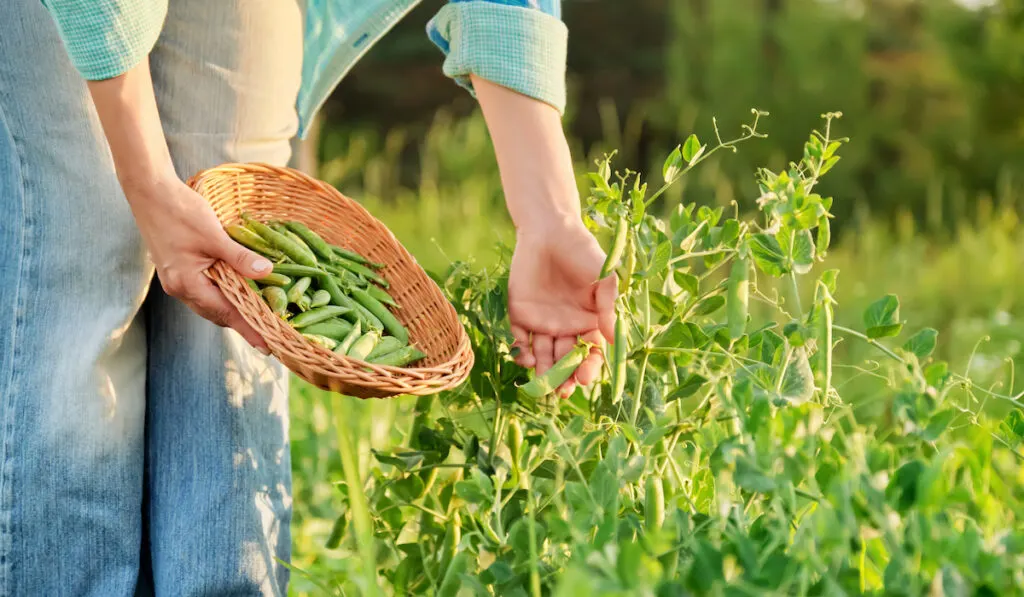
Although peas grow well in cool seasons, planting them in summer has many advantages.
- They do well in the cooler temperatures of the first half of summer. Days and nights are warm from April to June, providing optimum temperature for growth.
- You can plant them twice a year for commercial purposes.
- Common pests such as aphids are not prevalent in summer. Therefore, your peas will grow without disease interruption.
To enjoy these benefits, you should choose the right variety and keep your garden fertile and well-drained.
Unlike other crops, peas can do well in poor soils.
Black-eyed peas, crowder peas, cream peas, and cowpeas are among the varieties that thrive in June.
5. Eggplant
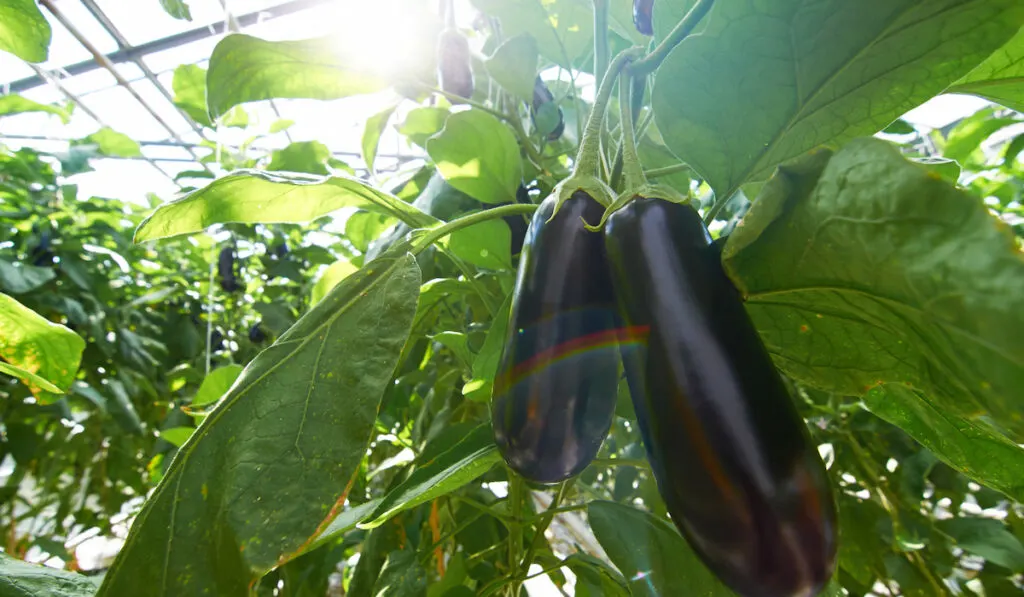
Eggplants do well in warm conditions (but not too hot). Although they do require ample sunlight, the scorching rays of high afternoon can harm their growth.
That aside, you can grow eggplants in Texas and enjoy a bountiful harvest. But you have to time them well.
If you plant them in early June, they will thrive in the warm temperatures of early summer. Besides, the weather is humid at this time, which is the perfect condition for their growth.
Here are reasons to grow eggplants in June in Texas:
- Eggplants require minimal attention while growing.
- Most eggplant varieties are resistant to diseases. Additionally, diseases like southern blight and blossom end rot are not prevalent during summer.
You can keep pests at bay by mulching the soil between rows until your plants mature.
‘Black Bell’, ‘Black Magic’, ‘Epic Classic’, ‘Florida High Bush’, ‘Florida Market’, and ‘Night Shadow’ are among the varieties to plant.
6. Cucumber
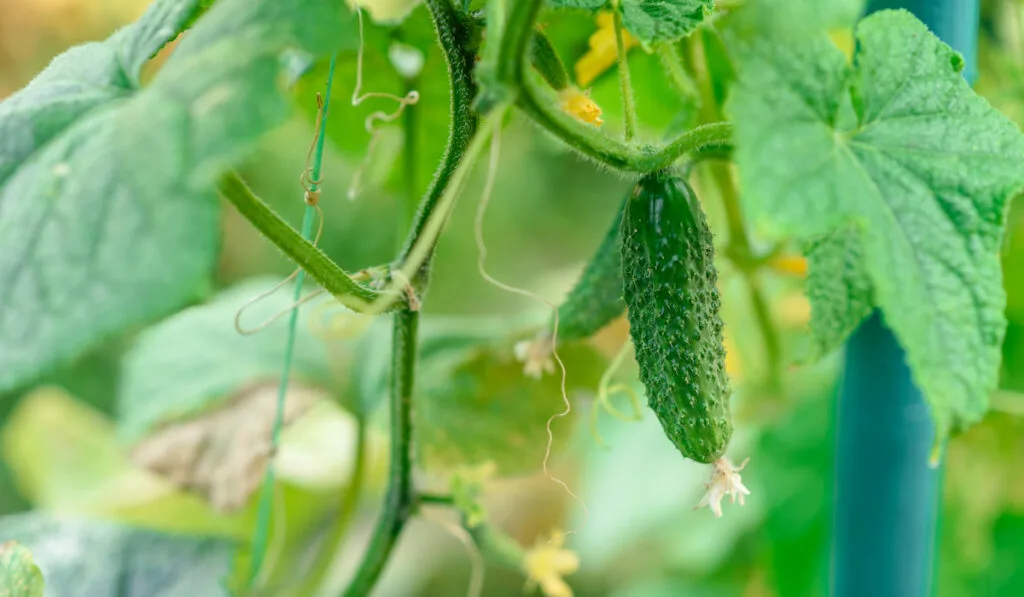
Cucumbers are known for their high nutritional value. Planting them in June is ideal because they do well in warm weather with plenty of sunlight.
Here are the benefits of growing cucumbers:
- High yields even from a small yard
- Good source of vitamins and minerals, low calories, and high water content
- Simple maintenance, hence ideal for beginners
- Versatile serving options
Cucumbers grow well under minimal care. You only need to apply mulch on the soil to keep the fruits clean when the plant matures.
Also, keep your garden moist since the plant loses a lot of water through transpiration from the hot sun.
The cucumber varieties to plant include Persian and English cucumbers.
7. Okra
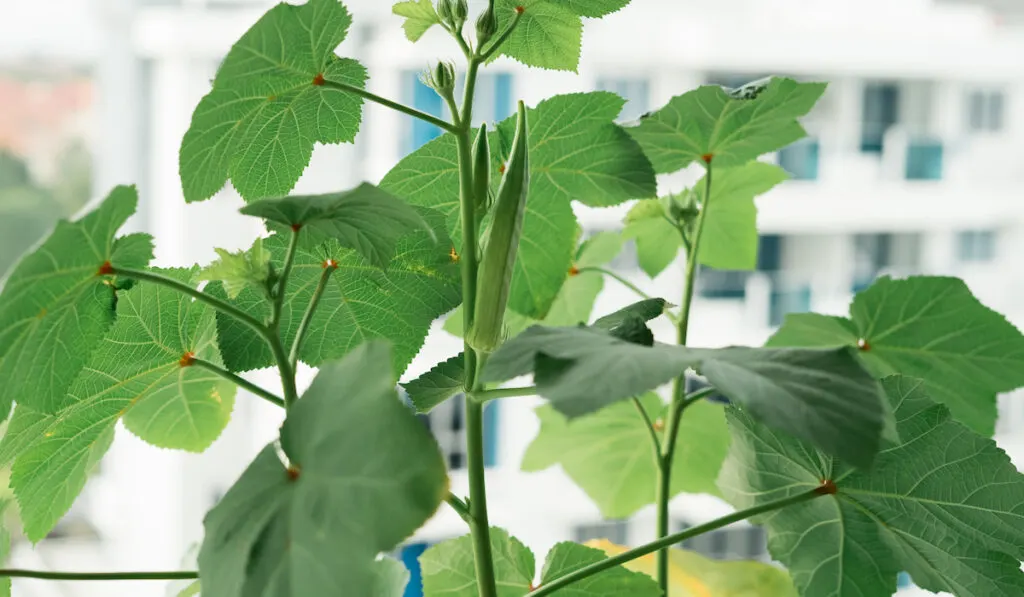
Texas is the major okra supplier in the United States. Being a warm-season vegetable, the plant thrives during summer.
Whether you are a seasoned farmer, haven’t tried okra, or are starting out on your growing adventures, okra is a worthy venture.
You will enjoy the following benefits when you plant okra in June:
- Minimal labor when planting
- No nursery practices since you plant the seeds directly
- High productivity as new pods result from harvesting
Ensure you keep your garden moist as the plant is large with a lot of leaf surface and requires a lot of water. The ideal soil pH is about 6.5–7.
You can maintain the pH by using organic manure instead of chemical fertilizer.
‘Ann Oakley’, ‘Long Pod Dwarf’, ‘Blondy’, ‘Prelude’, ‘Heirloom’, ‘Stewart’s Zeebest’, ‘Cajun Delight’, ‘Clemson Spineless’, ‘Green Best’, ‘Lee’, and ‘Velvet’ are among the varieties to grow.
8. Radish
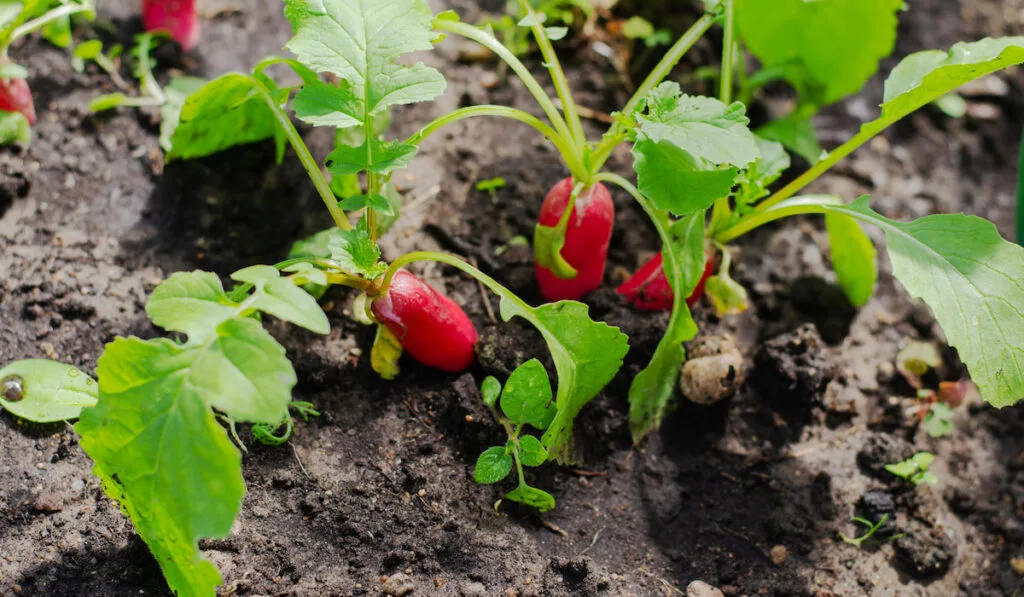
Most radish varieties grow well in low temperatures. However, some varieties have a commendable heat resistance and therefore can thrive in summer.
Keep the soil moist and shaded to minimize water loss. Besides, shade in your garden can protect your plants against the sizzling summer sun.
Red and white radish varieties do well in summer.
You can try them this coming June for a fast, tasty harvest.
Final Thoughts
Gardening is beneficial for your body, mind, and soul. It also improves your well-being when you consume fresh vegetables from your garden.
To reap the benefits, knowing the right crops to grow in different seasons is crucial. This guide will help you choose what to grow this summer.
Resources
- https://www.centraltexasgardener.org/resource/june-to-do-list/
- https://www.rainbowgardens.biz/seasonal-gardening-tips/spring-garden/san-antonio-tomatoes-heat-tolerant-sun-tomato/
- https://www.rhs.org.uk/vegetables/carrots/grow-your-own
- https://aggie-horticulture.tamu.edu/wp-content/uploads/sites/12/2011/03/E-505_carrots.pdf
- https://aggie-hort.tamu.edu/archives/parsons/publications/onions/ONIONGRO.html
- https://agrilife.org/etg/2015/02/13/time-to-plant-onions/
- https://www.statesman.com/story/news/2018/05/04/embrace-summer-peas-for-food-soil-repair/10012477007/
- https://counties.agrilife.org/galveston/files/2012/03/Eggplant-Publ.-E-280.pdf
- https://bonnieplants.com/blogs/how-to-grow/growing-cucumbers
- https://bonnieplants.com/blogs/how-to-grow/growing-okra
- https://www.agrifarming.in/guide-to-growing-okra-bhendi-in-texas-for-beginners-soil-preparation-to-harvest
